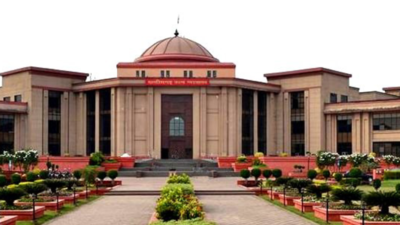Chhattisgarh HC upholds ‘doctrine of pleasure’ for nominated appointees | Raipur News

RAIPUR: The Chhattisgarh High Court has upheld the state government’s authority to remove nominated appointees from positions like Chairperson and Members of the Chhattisgarh Rajya Anusuchit Janjati Ayog (Chhattisgarh State Scheduled Tribes Commission) without notice, cause, or a hearing. This ruling affirmed a Single Judge’s dismissal of a writ petition filed by appellants Bhanu Pratap Singh, Ganesh Dhruw, and Amrit Lal Toppo.
The appellants were appointed by nomination on July 16, 2021, as Chairperson and Members, respectively, of the Commission under the Chhattisgarh Rajya Anusuchit Janjati Ayog (Sanshodhan) Adhiniyam, 2020. Their appointment orders explicitly stated that their tenure was subject to the “pleasure of the State Government,” as stipulated in Section 4(1) of the Act.
Following the 2023 State Legislative Assembly elections and a subsequent change in government, the State issued an order on December 15, 2023, directing the removal of “politically appointed” individuals across various departments, with exceptions for those protected by specific legal provisions. Consequently, the services of the appellants were terminated on the same date.
Challenging this decision, the appellants argued that their removal was arbitrary and violated statutory safeguards under Section 4(3) of the Adhiniyam, 2020, which mandates an opportunity for a hearing before removal.
However, a Division Bench of Chief Justice Ramesh Sinha and Justice Ravindra Kumar Agrawal ruled against the appellants. The Bench cited Supreme Court precedents such as B.P. Singhal v. Union of India and Om Narain Agrawal v. Nagar Palika, Shahjahanpur, holding that appointments made by nomination, rather than a competitive selection process, are governed by the doctrine of pleasure, as outlined in Section 4(1) of the Adhiniyam, 2020.
The Court clarified that this doctrine inherently excludes the requirement to adhere to principles of natural justice. Furthermore, the termination order of December 15, 2023, was deemed non-stigmatic, focusing solely on the cessation of politically appointed roles after the election, without reflecting negatively on the appellants’ performance or character.
Addressing the appellants’ reliance on Section 4(3), which details removal procedures and a hearing provision, the Court emphasized that this provision does not supersede the overarching doctrine of pleasure established under Section 4(1). In this context, the State’s discretionary power to appoint and remove remained unrestricted by the statute.
The Court acknowledged that the terminations occurred following the 2023 elections but deemed this timing irrelevant to the legal validity of the State’s action, viewing the December 15, 2023, directive as a legitimate exercise of executive discretion.
In its headnote, the Court encapsulated its ruling: “If an appointment has been made initially by nomination, there can be no violation of any provision of the Constitution in case the legislature authorised the State Government to terminate such appointment at its pleasure and to nominate new members in their place.” The Bench ultimately upheld the Single Judge’s dismissal of the writ petition, thereby affirming the State’s authority to terminate the appointments under the doctrine of pleasure.






